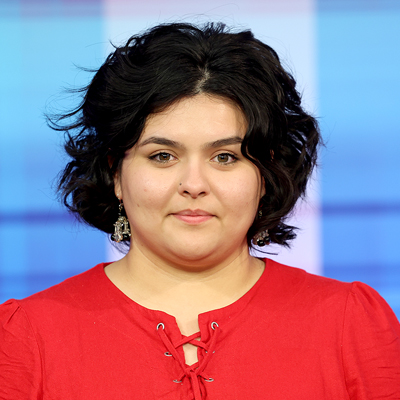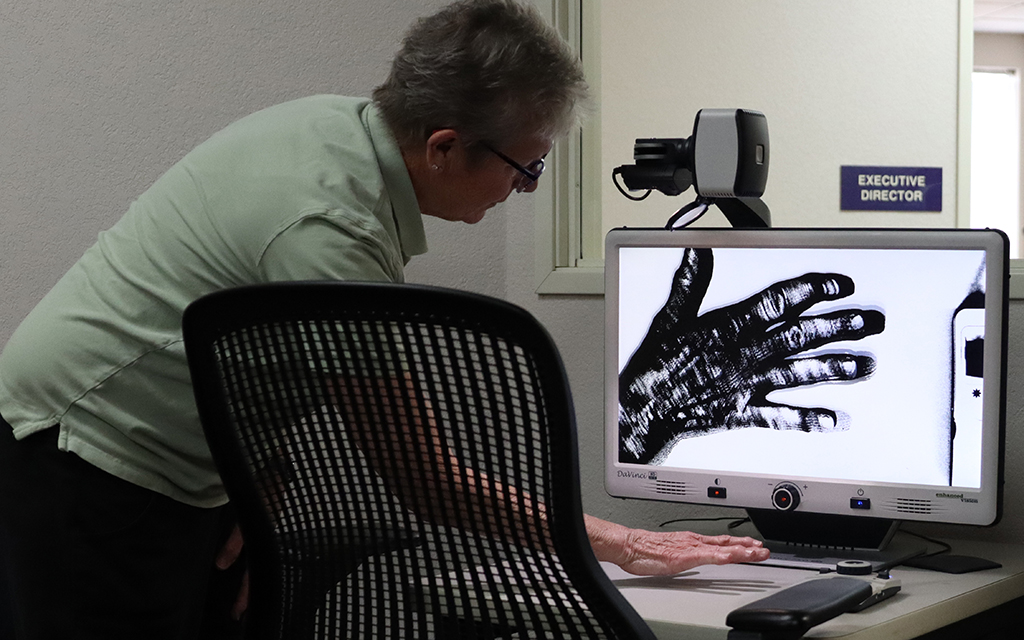
Kathy Zwald, an orientation mobility specialist, demonstrates a screen magnifier used by people who are visually challenged. Photo taken on April 12, 2023. (Photo by Izabella Hernandez/Cronkite News)
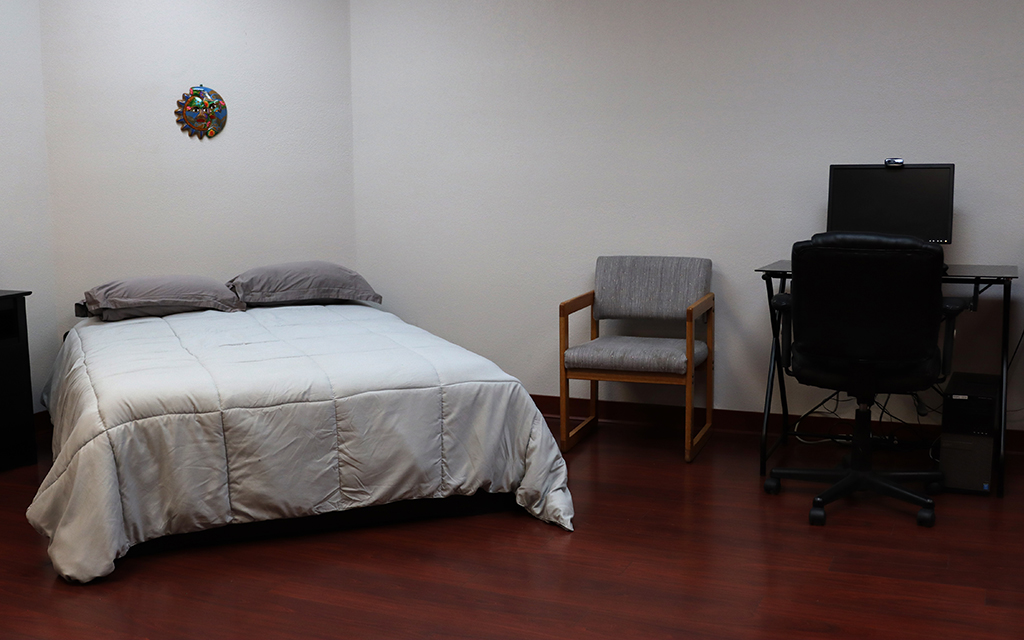
The Arizona Center for the Blind and Visually Impaired has different work rooms on campus that mimics a typical home. One of the rooms is used to teach people how to make a bed.. Photo taken on April 12, 2023. (Photo by Izabella Hernandez/Cronkite News)
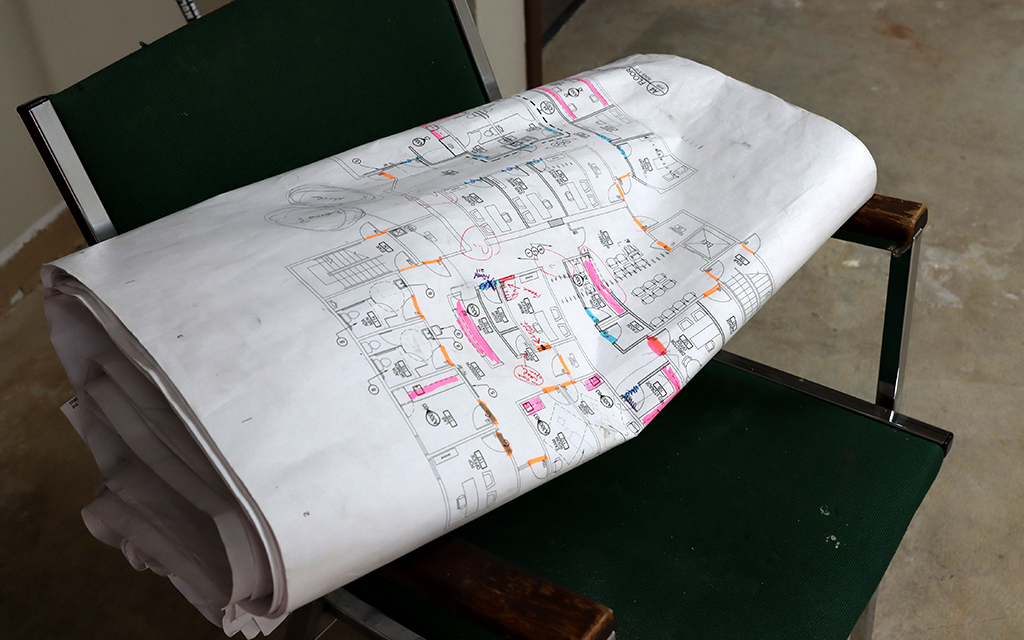
Floor plans in a construction zone show a medical center that will be operated by Terros Health in partnership with Arizona Center for the Blind and Visually Impaired. Photo taken on April 12, 2023. (Photo by Izabella Hernandez/Cronkite News)
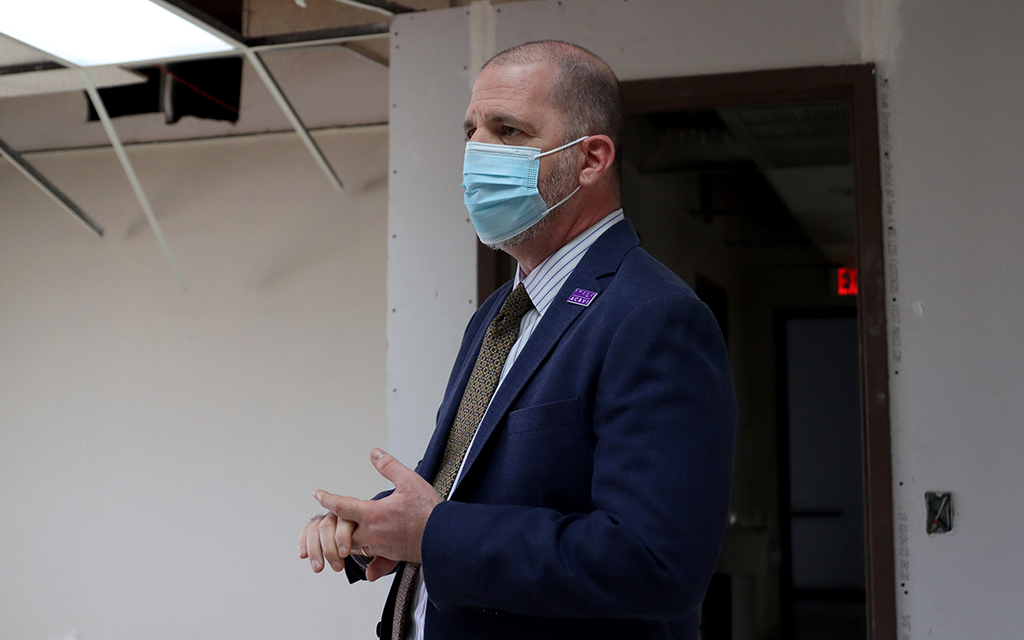
Steve Tepper is the executive director of Arizona Center for the Blind and Visually Impaired. Photo taken on April 12, 2023. (Photo by Izabella Hernandez/Cronkite News)
PHOENIX – Bill Kirby is going through his emails. He swipes through his phone, listening for the mail app to pop up. Once it does, the app reads his email out loud, so quickly it sounds like static, making it nearly impossible for most people to understand. Kirby does, but he slows it down so others can hear.
Kirby, an alum of a program at the Arizona Center for the Blind and Visually Impaired, teaches IT and technology. He’s an instructor – among the 65% of people who are blind or visually impaired who were hired as instructors at the center.
“I’m teaching assistive technology, so anything Microsoft, using a screen reader or some kind of magnification software,” Kirby said. It allows people who are blind or visually impaired to access communication and other life-related technology.
Steve Tepper, executive director of the center, and his team work to help people who are blind, visually impaired or have hearing loss be independent adults, including performing everyday tasks and building skills to “help them get back to work.”
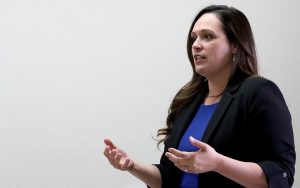
Dr. Vanna Campion is the chief medical officer at Terros Health, a nonprofit company collaborating with the Arizona Center for the Blind and Visually Impaired to provide access to health care, from primary care to mental health, for people with disabilities. Photo taken on April 12, 2023. (Photo by Izabella Hernandez/Cronkite News)
The program can last about nine months but take up to two years, depending on a student’s needs, Tepper said.
Now, they will work with Terros, a nonprofit health organization, so those going through the program – or others with disabilities – get low-cost or free health care.
The center and Terros Health are building a new unit in north central Phoenix. The partnership will give blind and visually impaired people in the area access to primary care, substance-abuse treatment and mental health treatment.
“This neighborhood deserves the same access and the same equity that our clients do,” Tepper said of the area near 32nd Street and Roosevelt Avenue.
Leaders at the center and Terros Health, a mental health and substance abuse treatment nonprofit that recently added primary care services, came up with the concept during the pandemic.
As coronavirus cases soared and vaccinations were made available, a website-based system that mainly required online registrations limited opportunities for people with low vision or who are legally blind.
Terros stepped in to provide a vaccination clinic at the center.
“Our people finally were able to get vaccinated and that was a really big deal,” Tepper said.
Tepper and Dr. Vanna Campion, chief medical officer at Terros, started brainstorming, talking about the different ways they could work together to provide accessible health care.
Ray Young, a health center director for Terros, talked about the collaboration as a beautiful and organic partnership where leaders for both groups want the same thing – equitable health opportunities for people in need.
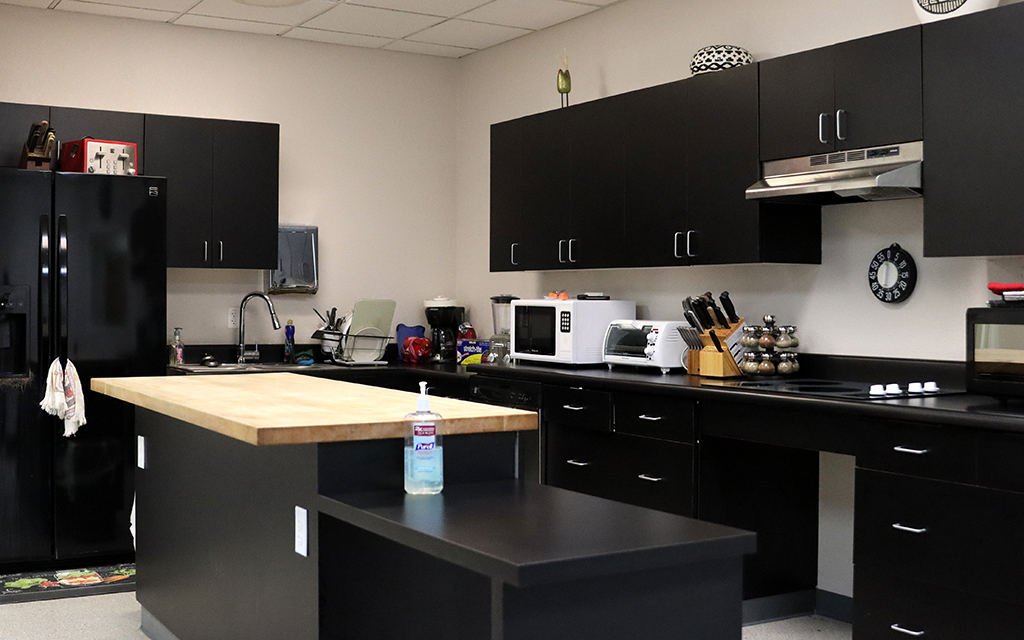
This mock kitchen is used by people who go to Arizona Center for the Blind and Visually Impaired to learn life skills, such as how to use an oven. Photo taken on April 12, 2023. (Photo by Izabella Hernandez/Cronkite News)
“We really focus on the whole patient right, this comprehensive health care and bringing those treatments to the patients,” Campion said.
As they wait for the building to be completed sometime this summer, they co-host events like a recent community resource fair, Young said, for those who may not have access to medical help.
Patients can use Dial-A-Ride, a service that takes low-income people to doctor appointments and other medical services, but it requires advance reservations.
“If you fall ill midday and you need to go to urgent care, if you can’t afford an Uber and don’t have someone to drive you, you’re not going till the next day,” Tepper said.
That’s what they like about the coming clinic.
“We can walk you 30 feet down the hall and into the clinic,” Young said.
And Young said the collaboration means Terros can expand its services.
“It’s going to help us grow in that capacity to help a different population that we typically don’t help in that quantity,” Young said.


